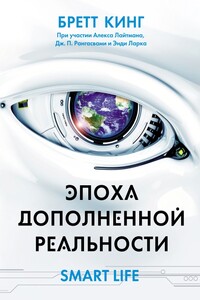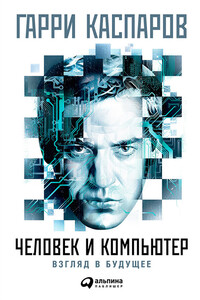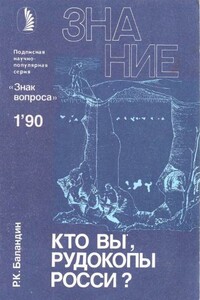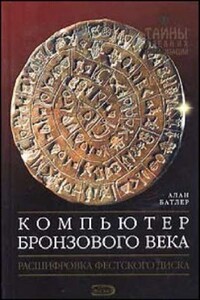Английский язык для специальных и академических целей: Международные отношения и зарубежное регионоведение. Часть 1 - [68]
| 20 | |||
| Don't know | 6 | 2 | 10 |
Does compulsory voting represent a viable solution to the on-going disconnect between young people and the democratic process? It would seem that more young people would vote if such a system were introduced — not surprising if such a system were mandatory. However, whether or not this would mean that they would feel truly connected to the democratic process remains in question. Indeed, forcing young people to vote when they feel such a deep aversion to the political class may actually serve to reinforce a deepening resentment, rather than to engage them in a positive manner and bolster the democratic process.
The Reader
Mark Easton, BBC News, UK
29 May 2012 http://www.bbc.com/news/uk-18237280
Both tweets related to the same item, a report for the BBC News at Ten that tried to answer a straightforward question: why does a country that has become so cynical about other institutions (Parliament, the City, the press, the police) remain so loyal to the monarchy?
Whatever republicans might wish, less than a fifth of the Queen's subjects in the UK say they want to get rid of the Royal Family — a proportion that has barely changed across decades.
According to polling data from Ipsos Mori, support for a republic was 18% in 1969, 18% in 1993, 19% in 2002 and 18% last year. Three-quarters of the population want Britain to remain a monarchy — a finding that has been described by pollsters as “probably the most stable trend we have ever measured”.
Given the enormous social change there has been since the current Queen assumed the throne 60 years ago, it might seem surprising that a system of inherited privilege and power should have retained its popularity.
But reading some of the comments on Twitter, it seems that even to raise a quizzical eyebrow at the approval ratings of the Windsors is regarded by some monarchists as tantamount to treason.
Republicans, on the other hand, believe that to highlight the conspicuous lack of progress they have had in winning the nation to their cause is evidence of obsequious knee-bending.
I recently re-acquainted myself with the work of two seminal figures in the long-running debate between republican and monarchist thinkers in Britain — Thomas Paine and Walter Bagehot.
I was searching for an answer to the same question: “What is it about our country that we retain such affection for a system which appears at odds with the meritocratic principles of a modern liberal democracy?”
In January 1776, Paine's pamphlet Common Sense began to be passed around among the population of the colonies of the New World, a manifesto for American independence and republicanism.
“There is something exceedingly ridiculous in the composition of Monarchy,” Paine declared. “One of the strongest natural proofs of the folly of the hereditary right in kings, is, that nature disapproves it, otherwise she would not so frequently turn it into ridicule by giving mankind an ass for a lion.”
The Reader
He contrasted the common sense of his pamphlet's title with the absurdity and superstition that inspired the “prejudice of Englishmen” for monarchy, arising “as much or more from national pride than reason”.
To this day, British republicans refer to Paine's Common Sense almost as the sacred text. But monarchists have their own sacred text, written almost exactly a century afterwards. Walter Bage-hot's English Constitution was a belated response to the revolutionary arguments of the New World republicans.
“We catch the Americans smiling at our Queen with her secret mystery,” he wrote, with a suggestion that Paine and his kind were prisoners of their own “literalness”. Bagehot didn't try to justify monarchy as rational (indeed he accepted many of Paine's criticisms), but his point was that an “old and complicated society” like England required more than mundane, dreary logic.
Walter Bagehot wrote about the “mystic reverence” essential to “true monarchy”
“The mystic reverence, the religious allegiance, which are essential to a true monarchy, are imaginative sentiments that no legislature can manufacture in any people,” he wrote. “You might as well adopt a father as make a monarchy.”
Bagehot had identified a developing national characteristic. As colonial power and the riches of empire declined, there was an increasing desire to define greatness as something other than wealth and territory. Britain wanted to believe it was, intrinsically, special. “People yield a deference to what we may call the theatrical show of society,” he wrote. “The climax of the play is the Queen.”
Wind the clock forward to 1952 and plans were being made for the Coronation of the new Elizabeth II. Despite post-war austerity, it was decided the event should be a fabulous, flamboyant, extravagant affair with all the pomp and pageantry they could muster. There would be feathers and fur, gold and jewels, anthems and trumpets.

В своей книге Бретт Кинг, автор бестселлеров, эксперт-футуролог, известный журналист и телеведущий, рисует яркую картину будущего. Это время, когда дополненная реальность – интернет-медицина, искусственный интеллект, роботы, умные вещи и города – станет повседневной нормой. Ближайшие два десятилетия принесут человечеству намного больше изменений, чем минувшие 250 лет. Исследуя вопрос, как новые технологии повлияют на человека, общество и государства, Бретт Кинг приходит к оптимистичному выводу. Он уверен, что инновации будут использованы во благо: возникнут новые творческие профессии, сократятся часы работы, вырастут доходы. Эта книга интересна и полезна каждому: она расширяет горизонты знаний о дополненной реальности и готовит нас к грядущим переменам.

Сегодня искусственный интеллект меняет каждый аспект нашей жизни — ничего подобного мы не видели со времен открытия электричества. Но любая новая мощная технология несет с собой потенциальные опасности, и такие выдающиеся личности, как Стивен Хокинг и Илон Маск, не скрывают, что видят в ИИ возможную угрозу существованию человечества. Так стоит ли нам бояться умных машин? Матчи Гарри Каспарова с суперкомпьютером IBM Deep Blue стали самыми известными в истории поединков человека с машинами. И теперь он использует свой многолетний опыт противостояния с компьютерами, чтобы взглянуть на будущее искусственного интеллекта.

Самые необычные природные явления: брайникл, фата-моргана, прибрежное капучино, огни Святого Эльма, шаровая молния, огненная радуга, огненный вихрь, двояковыпуклые облака, красные приливы, световые столбы, волны-убийцы.

Нам предстоит познакомиться с загадочным племенем рудокопов, обитавших около 2–4 тысячелетий назад в бассейне реки Россь (Западная Белоруссия). Именно этот район называл М. В. Ломоносов как предполагаемую прародину племени россов. Новые данные позволяют более убедительно обосновать и развить эту гипотезу. Подобные знания помогают нам лучше понять некоторые национальные традиции, закономерности развития и взаимодействия культур, формирования национального характера, а также единство прошлого и настоящего, человека и природы.http://znak.traumlibrary.net.

Созданный более 4000 лет назад Фестский диск до сих пор скрывает множество тайн. Этот уникальный археологический артефакт погибшей минойской цивилизации, обнаруженный на острове Крит в начале XX века, является одной из величайших загадок в истории человечества. За годы, прошедшие со дня его находки, многие исследователи пытались расшифровать нанесенные на нем пиктограммы, однако до настоящего времени ни одна из сотен интерпретаций не получила всеобщего признания.Алан Батлер предлагает собственную научно обоснованную версию дешифровки содержимого Фестского диска.
